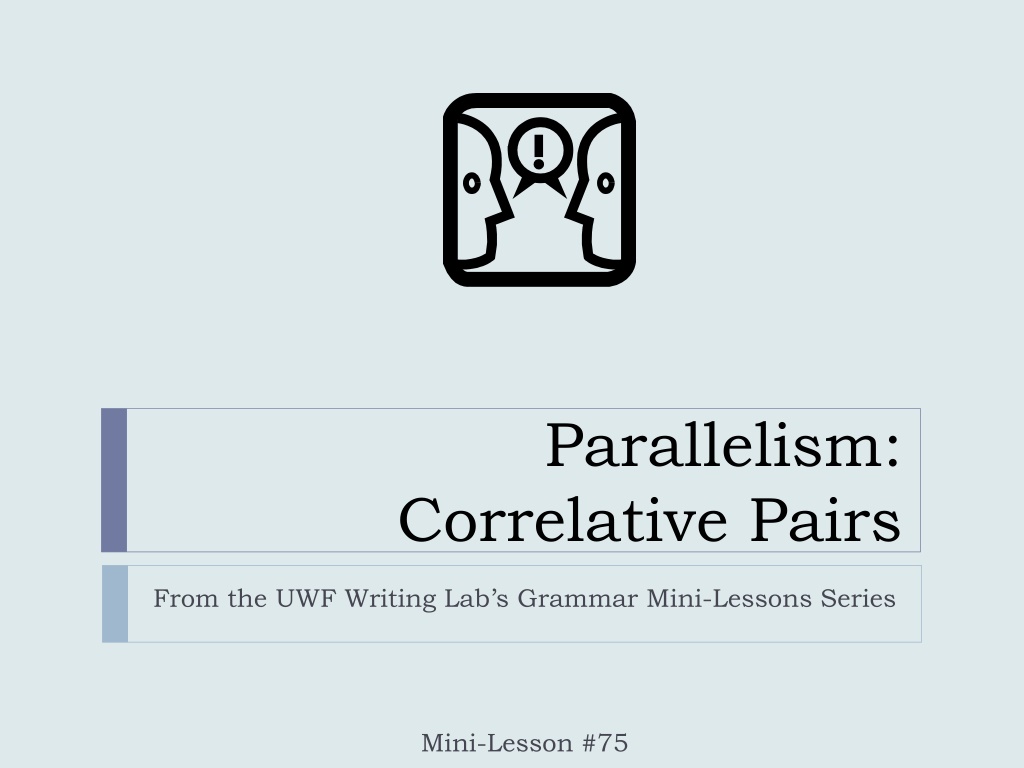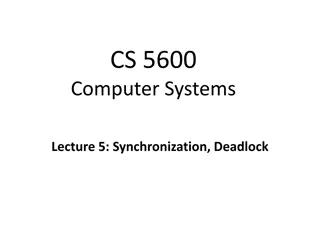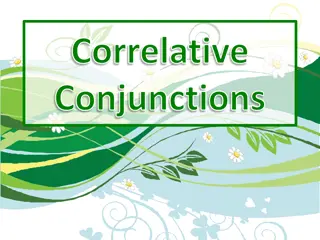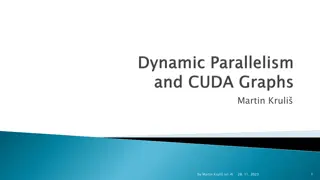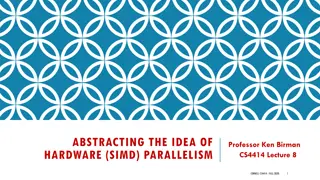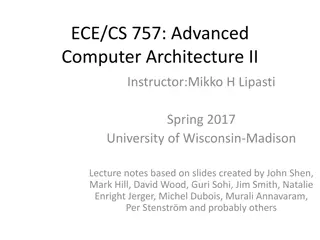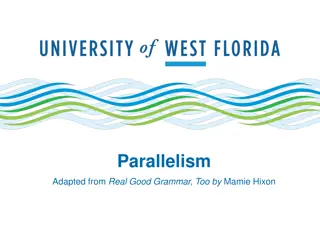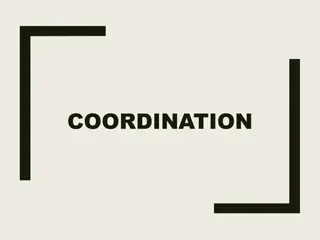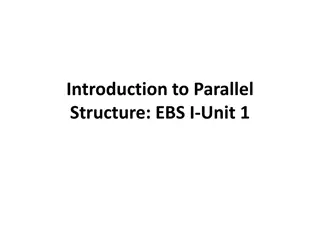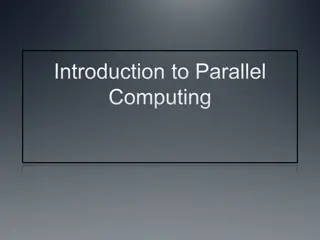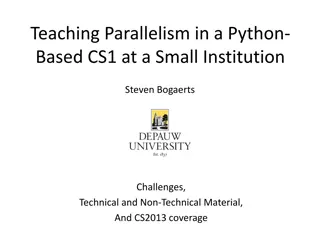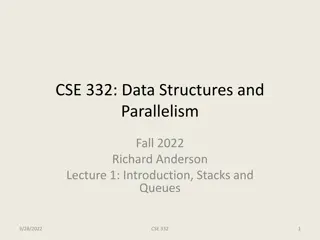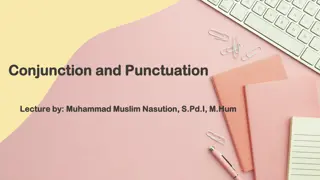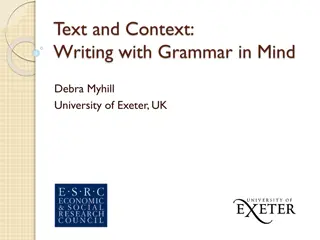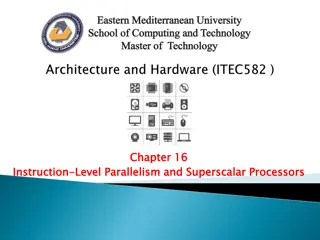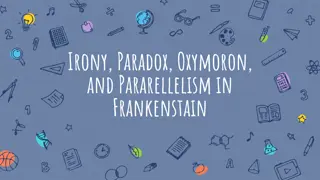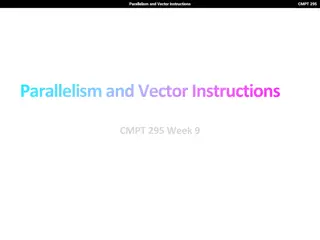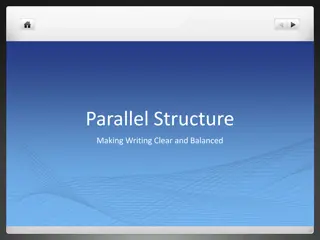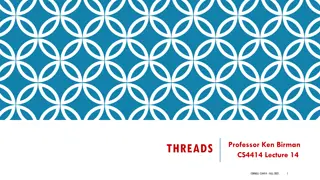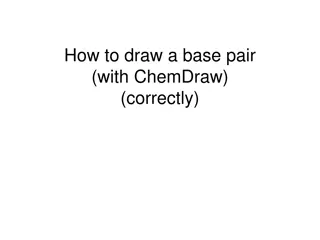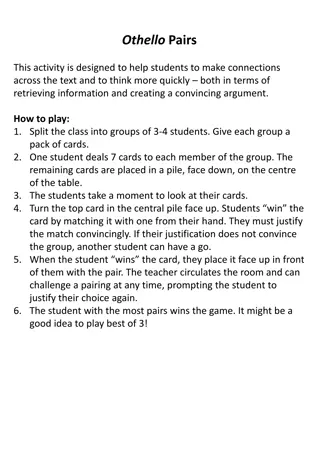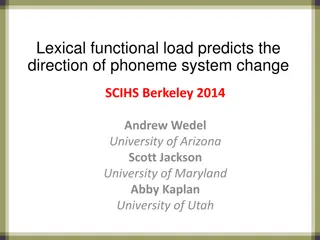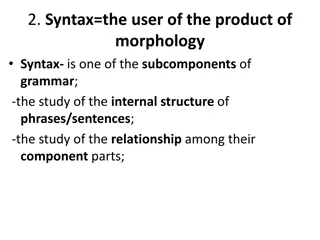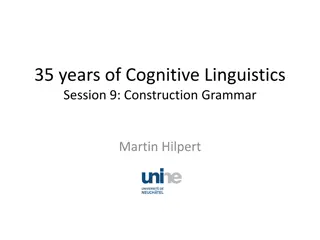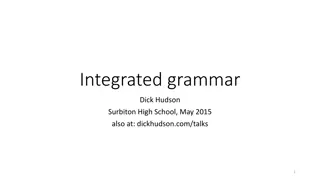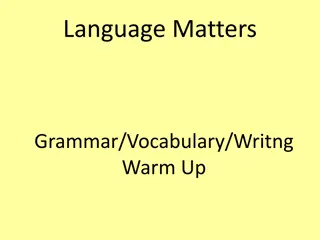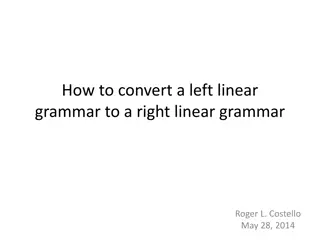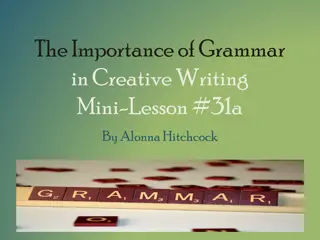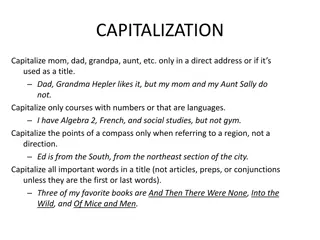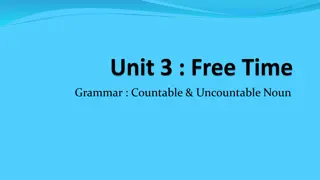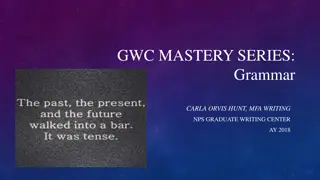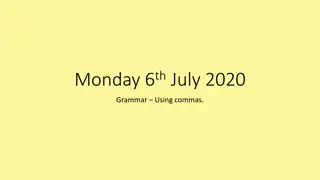Mastering Parallelism with Correlative Pairs in Grammar
Understanding the importance of parallelism in grammar, particularly with correlative pairs, is essential for effective writing in standard English. This mini-lesson covers the correct usage of correlative conjunctions and provides examples to clarify common errors. By employing parallel grammatical constructions, writers can ensure balance and coherence in their writing.
Download Presentation

Please find below an Image/Link to download the presentation.
The content on the website is provided AS IS for your information and personal use only. It may not be sold, licensed, or shared on other websites without obtaining consent from the author. Download presentation by click this link. If you encounter any issues during the download, it is possible that the publisher has removed the file from their server.
E N D
Presentation Transcript
Parallelism: Correlative Pairs From the UWF Writing Lab s Grammar Mini-Lessons Series Mini-Lesson #75
Items in a series should be balanced or coordinated; that is, to indicate the same rank and role of items in a series or to indicate equality of these ideas, writers of standard written English must employ parallel grammatical constructions. In order to ensure that these are grammatically similar, the writer conveys his or her message in parallel language. Some writers make a construction appear to be parallel when actually it is not by incorrectly mixing the parts of correlative pairs.
Correlative pair is neither nor. Incorrect: I readily admitted that I had neither interest or need for this seminar Correct: I readily admitted that I had neither interest nor need for this seminar. Correlative pair is not only but also. Incorrect: The Beatles were talented not only as performers but as composers. Correct: The Beatles were talented not only as composers but also as composers.
Frequently Used Correlative Conjunctions Both and Either or Just as so Neither nor Not only but also Whether or
